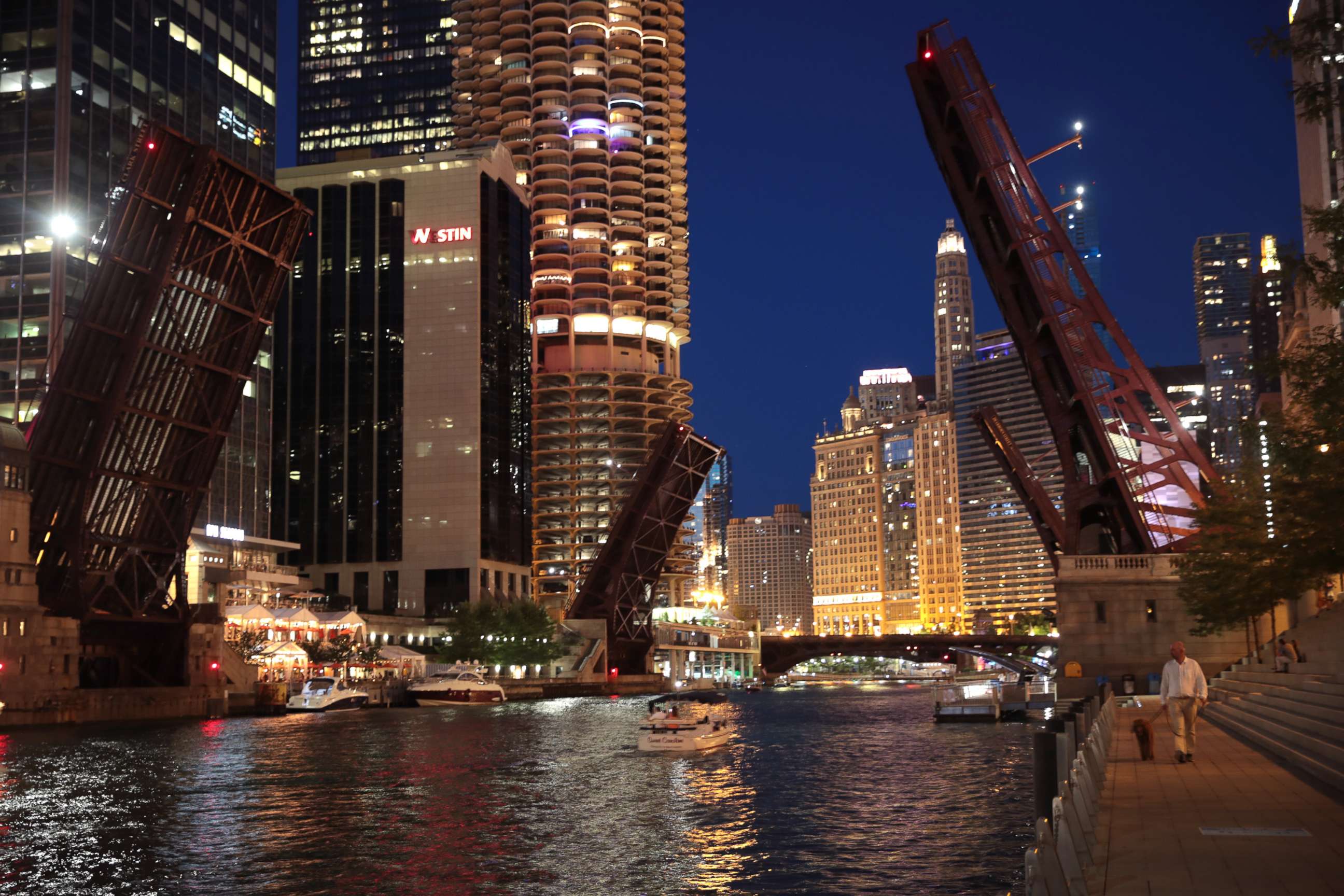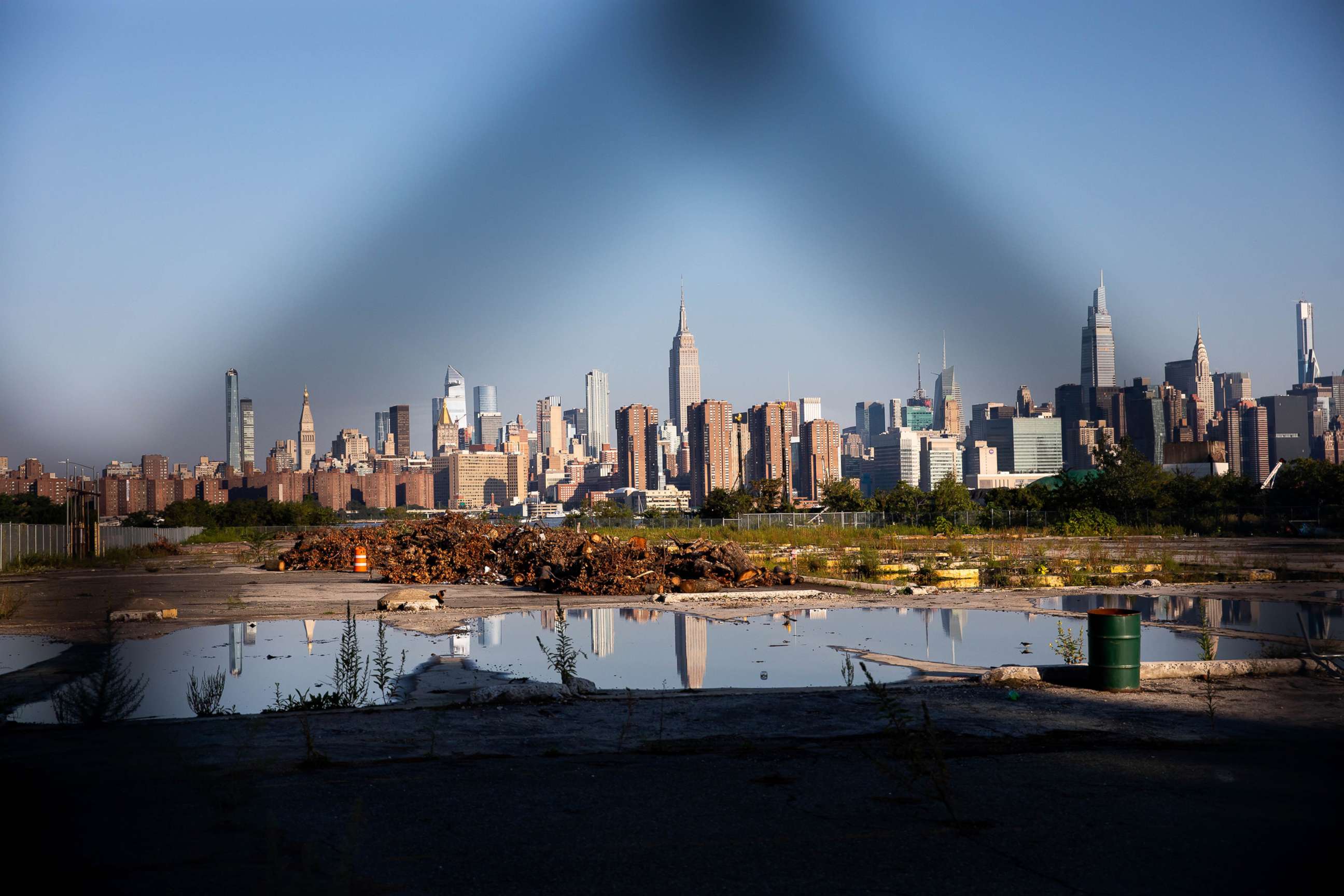Half of households in 4 largest US cities report financial problems due to pandemic: POLL
About one in three households report using most of their savings.
Americans already enduring the most frayed financial safety nets now find themselves on the fault lines exacerbated by the novel coronavirus. New polling reveals the strain born by families caught in the crosshairs of several issues converging on the country: COVID-19 and systemic racial, socioeconomic and health inequality.
The survey, released Wednesday from NPR, Robert Wood Johnson Foundation, and Harvard’s T.H. Chan School of Public Health, explores COVID-19’s impact on households in the nation’s four largest cities: New York City, Los Angeles, Chicago and Houston.
At least half the households in all four cities report facing serious financial problems in the midst, and because, of the pandemic. The study, conducted July 1 - Aug. 3, found many households' savings are drained. It also showed many are struggling to pay rent, pay major bills and ensuring the household has enough to eat. More than half are reporting serious problems caring for their children.
In nearly every case, the impact hits disproportionately harder amongst Black and Latino households, and households with incomes below $100,000. It underscores a blow already sustained by those groups amid the pandemic.
Economic fallout from COVID-19 has slammed communities of color, more harshly affected by record unemployment numbers now weathered by the nation. Those same groups, increasing evidence shows, are already disproportionately affected by the virus itself.

“These communities remain so vulnerable and in some serious trouble,” Dr. Robert Blendon, professor of Public Health and Political Analysis at the Harvard T.H. Chan School of Public Health, told ABC News. “We hear those PSA’s that say - we’re all in this together. It turns out, that’s not correct: what we see in the survey is, if you earn less, every increment down, you have more troubles. And if you’re Latino, or Black, your problems are dramatically more serious.”
In New York, Chicago and Los Angeles, about one in three households report using up all, or most of their savings during the pandemic; in Houston, even worse: four in 10.
“Unless we find a way to add some cushion, we're going to have extraordinarily heartbreaking pictures of people losing their abilities to ever recover,” Blendon said. “Whatever we have here - it’s only going to get worse unless something intervenes.”
Half of New York and Chicago households, even more in Los Angeles and Houston, reported having lost their jobs, being furloughed, their wages or hours reduced, since the virus’ outbreak, the poll said.
Across all four cities, at least one in four households report serious trouble paying utility bills and as many as one in three of households reported serious problems affording food.

In each city, the impact excessively hit Black and Latino households and those already treading financial water.
On healthcare across all four cities, households reported members being unable to get medical care for serious problems when they needed it, and faced negative health consequences for it.
The feeling of vulnerability is widespread. Homes with health care workers, specifically patient care providers, shared serious concerns about their safety from the virus. And those for whom public transit is the only way to get to an even more necessary job also share serious concerns about their safety.
The portrait emerging from these data points bears out the dire straits so many have already been feeling amid this months-long health crisis, experts say.
“It’s not a pretty picture,” Dr. Julie Morita, executive vice president of the Robert Wood Johnson Foundation, told ABC News. “People struggling to make ends meet and struggling to meet the basics - basically living on the edge. And then what pandemic does - is just push them over the edge.”
“This pandemic has revealed glaring problems in the nation’s healthcare system,” said Dr. Richard Besser, president and CEO of the Robert Wood Johnson Foundation. “At a time when a significant number of people need health care most, many cannot get it. We need to be able to provide safe, affordable health care for people with Covid-19 as well as for the many with chronic medical conditions so rampant in America. It is unacceptable that in a wealthy nation like ours factors such as income or race play such a big role in health care access.”
Now with the insight their survey yields, Morita said, they hope to inform policy.
“I’m hopeful this will motivate us to move forward with policies that will really address the structural barriers that have been out there for so long,” Morita said. “What can we do to help people keep off that edge, to a better living baseline when the next pandemic comes - because we know there will be another one - and we can prevent these inequities from occurring again.”
ABC News' Eric Strauss contributed to this report.



